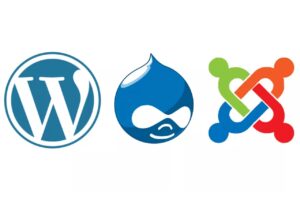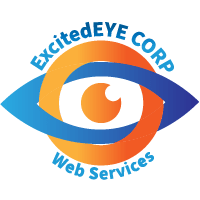CMS Explained

Content management systems (CMS) are software platforms that allow users to create, manage, and publish digital content. Digital content such as text, images, videos, and audio files. CMS platforms are typically used to build and manage websites, are designed to be user-friendly, and allow non-technical users to easily create and update content.
Some common features of a content management systems include:
- WYSIWYG (What You See Is What You Get) editor:
A WYSIWYG editor allows users to create and edit content using a visual interface similar to a word processor. - Templates and themes:
Templates and themes allow users to customize the appearance of their website and create a consistent look and feel. - Plugins and extensions:
Plugins and extensions add functionality to a CMS and allow users to add features such as contact forms, e-commerce, and social media integration. - User roles and permissions:
A CMS typically includes user roles and permissions, allowing administrators to control who can access and edit different site areas. - Version control:
A CMS typically includes version control, which allows users to view and revert to previous versions of content.
 Popular Content Management Systems
Popular Content Management Systems
Many content management systems (CMS) options are available, and the best option for you will depend on your specific needs and goals.
Here are a few popular CMS platforms that are widely used and well-regarded:
- WordPress:
WordPress is the most widely used CMS in the world. Primarily popular for creating blogs and websites for small businesses. It is known for its ease of use, wide customization options, and a large community of users and developers. - Joomla:
Joomla is a CMS similar to WordPress in terms of functionality and features. It is open-source and free to use and offers a wide range of customization options and extensions. - Drupal:
Drupal is another open-source CMS popular for building complex, enterprise-level websites. It is known for its flexibility and scalability and is used by many large organizations and government agencies. - SquareSpace:
SquareSpace is a website builder allowing users to create professional-looking websites without coding knowledge. It offers a range of templates and design options and includes hosting and other features as part of its monthly subscription fee.
Ultimately, the best CMS for you will depend on your specific needs and goals for your website. It is worth considering a few different options and evaluating their features and capabilities before deciding.
Choosing a CMS
Are you choosing a content management system (CMS) for a business?
The most important factors to consider when choosing a CMS:
- Ease of use:
A CMS should be easy for non-technical users to learn and use. Look for a CMS that has a user-friendly interface and offers documentation and support resources to help you get started. - Customization options:
Choose a CMS that offers a wide range of customization options, including templates, themes, and plugins, to allow you to create a unique and professional-looking website that reflects your brand. - SEO friendly:
Search engine optimization (SEO) is important for businesses because it helps improve your search engine rankings and drive traffic to your site. Choose a CMS that is optimized for SEO and allows you to easily add tags and descriptions to your content. - Responsive design:
Make sure the CMS you choose has responsive themes or templates that automatically adjust to different screen sizes and devices. This is important because more and more users are accessing the web on their smartphones and tablets. - Security:
Security is critical for businesses, as a security breach can have serious consequences. Choose a CMS that takes security seriously and regularly releases updates to address any vulnerabilities. - Integration with other tools and systems:
If you have other tools or systems that you need to integrate with your CMS, make sure that the CMS you choose has the necessary integration capabilities. - Cost:
Consider the cost of the CMS, including any subscription fees, hosting costs, and the cost of any additional features or plugins you may need. - Longevity:
Be sure to utilize a CMS that has a long lifecycle. Don’t be left out in the cold if your CMS system fails. Insure your system has a large user base.
Considering these factors, you can choose a CMS that meets your business’s specific needs and goals.
 Content Management Systems that Failed
Content Management Systems that Failed
Be Aware! Several content management systems (CMS) have failed or no longer have a growing membership base.
Here are a few of the Failed Content Management Systems:
- Movable Type:
Movable Type was a popular blogging platform that was launched in 2001. It was widely used by bloggers and businesses in the early 2000s. Unfortunately, its popularity declined in the mid-2000s as other platforms, such as WordPress, emerged. - Typepad:
Typepad was a blogging platform launched in 2003 as a paid alternative to free platforms like Blogger. It was popular in the mid-2000s, but it declined in the late 2000s as other platforms, such as WordPress, gained popularity. - ExpressionEngine:
ExpressionEngine was a CMS popular in the mid-2000s, its popularity declined in the late 2000s and early 2010s as other platforms, such as WordPress and Drupal, gained popularity. - Textpattern:
Textpattern was a CMS popular in the late 2000s, but its popularity declined in the 2010s as other platforms, such as WordPress, gained a larger market share.
It is worth noting these platforms may still have a small user base and may be supported by a community of developers. Although they are no longer widely used compared to other CMS platforms such as WordPress, Joomla, and Drupal.
WordPress CMS Websites
WordPress is extremely popular and is currently the world’s most widely used content management system (CMS). According to WordPress.org, WordPress powers over 60% of all websites using a CMS. It is particularly popular for creating blogs and websites for small businesses and is used by millions of individuals and organizations worldwide.
One of the reasons for WordPress’s popularity is its ease of use and wide range of customization options. It is open-source, which means that it is free to use and modify, and a large community of developers and users contribute to its development and support. WordPress also has many plugins and themes available, allowing users to easily add functionality and customize the appearance of their site.
Why WordPress?
There are several reasons why a business might consider using WordPress for its website:
- Ease of use:
WordPress is known for its ease of use, making it a good option for businesses with little technical expertise. It has a user-friendly interface and a large selection of plugins and themes that make it easy to add functionality and customize a site’s appearance. - Customization options:
WordPress offers a wide range of customization options, allowing businesses to create a unique and professional-looking website that reflects their brand. There are thousands of themes and plugins available which can be used to add features such as e-commerce, contact forms, and social media integration. - SEO friendly:
WordPress is optimized for search engines and can help businesses improve their search engine rankings. It has built-in support for SEO best practices and allows users to easily add tags and descriptions to their content. - Responsive design:
Many WordPress themes are responsive, which means that they automatically adjust to different screen sizes and devices. This is important for businesses because it ensures that their site is accessible and looks good on all devices, including smartphones and tablets. - Security:
WordPress takes security seriously and regularly releases updates to address any security vulnerabilities. This is important for businesses, as a security breach can have serious consequences.
Comparatively, WordPress is the best option for businesses that want an easy-to-use, customizable, and secure website. It is a widely used platform with a large community of users and developers. Making it easy to find support and resources when needed.
Finding WordPress Help
It is fairly easy to find WordPress help online, as many experienced WordPress users and professionals are available to help with WordPress sites.
Here are some ways you can find WordPress admins:
- WordPress.org support forums:
Firstly, you can visit the WordPress.org support forums and ask for help from the WordPress community. Many experienced WordPress users are willing to help out and offer advice. - Hire a WordPress developer:
Secondly, if you need more specialized help, you may consider hiring a WordPress developer. Many experienced WordPress developers can help you with customizations, theme development, and plugin development. You can find WordPress developers through online job boards, freelancer websites, or by contacting local web development agencies. - Use a support plugin:
Thirdly, several support plugins can also help you get support for your WordPress site. Some popular options include the WP Support Plus Responsive Ticket System plugin and the WP Support Plus WordPress plugin. These plugins allow you to create support tickets and receive assistance from WordPress experts. - Seek help from a hosting provider:
Forth, many hosting providers offer support for WordPress sites and can help you with WordPress-specific issues. If you are experiencing issues with your hosting provider, contact them for assistance. - Join a WordPress user group:
Finally, there are many WordPress user groups and meetups worldwide where you can connect with other WordPress users and professionals. You can find WordPress user groups in your local area through meetup.com or by searching online.
WordPress Designers VS WordPress Developers
A WordPress developer and a WordPress designer are two different roles in the WordPress ecosystem. As in a common Web Agency where designers design and developers develop.
A WordPress developer is skilled in developing custom solutions for WordPress sites, programming the site through custom plugins and themes. They may also be responsible for maintaining and troubleshooting existing WordPress sites.
On the other hand, a WordPress designer is responsible for creating the visual aesthetics of the design and layout of a WordPress site and pages. This may include creating custom themes, designing page layouts, and selecting usable color schemes and fonts.
Importantly, with over 20 years of WordPress experience, as a result, ExcitedEYE Corp utilizes both WordPress web design and WordPress development skills and can perform both in each role.
Pitfalls to a CMS
There are a few potential pitfalls to using a content management system (CMS):
- Complexity:
Some CMS platforms can be complex and require a certain level of technical expertise to use effectively. This can be a challenge for non-technical users or businesses that do not have in-house technical resources. - Security risks:
All websites, including those powered by a CMS, are at risk of security vulnerabilities. It is important to regularly update the CMS and any plugins or themes to address any security vulnerabilities and keep your site secure. - Dependence on third-party plugins and themes:
Many CMS platforms rely on third-party plugins and themes to add functionality and customize a site’s appearance. While this can be convenient, it can also introduce risks if the plugin or theme is not regularly updated or compatible with the latest version of the CMS. - Performance issues:
If a CMS platform is not optimized for performance. The CMS will have slow loading times and a poor user experience. Choosing a CMS that is optimized for performance and can scale as your website grows is important. - Cost:
CMS platforms can be expensive, especially if you purchase additional features or plugins. It is important to carefully consider the cost of a CMS before making a decision. Not forgetting about the hosting and possible migration or restoration services downstream if anything goes awry.
Finally, by being aware of these potential pitfalls and taking the necessary precautions, you will minimize the risks associated with using a Content Management System.
Lastly, ExcitedEYE has extensive knowledge of CMS and WordPress specifically. Contact ExcitedEYE to learn more about utilizing content management systems.

Leave a Reply
You must be logged in to post a comment.